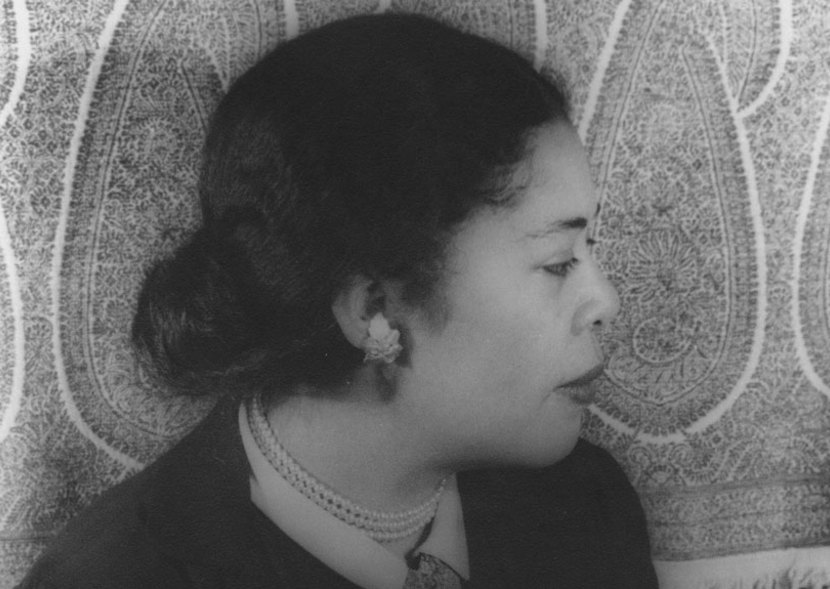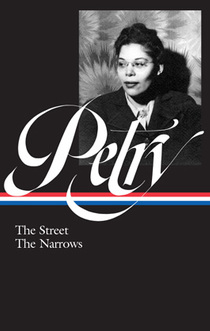
Major works:
The Street • The Narrows
“Sometimes when a writer is regarded as ‘before her time’ we don’t quite understand that the same work is still right on time. Petry is the writer we have been waiting for, hers are the stories we need to fully illuminate the questions of our moment, while also offering a page-turning good time. Ann Petry, the woman, had it all, and so does her insightful, prescient and unputdownable prose.”
— Tayari Jones, The New York Times (2018)
The Street
Ann PetryShe selected four potatoes from the package she had put on the kitchen table, washed them, found a paring knife, and seating herself at the table began peeling them.
Bub came to stand close beside her, almost but not quite leaning against her as though he was getting strength and protection from his closeness to her. “Mom,” he said, “why do white people want colored people shining shoes?”
She turned toward him, completely at a loss as to what to say, for she had never been able to figure it out for herself. She looked down at her hands. They were brown and strong, the fingers were long and well- shaped. Perhaps because she was born with skin that color, she couldn’t see anything wrong with it. She was used to it. Perhaps it was a shock just to look at skins that were dark if you were born with a skin that was white. Yet dark skins were smooth to the touch; they were warm from the blood that ran through the veins under the skin; they covered bodies that were just as well put together as the bodies that were covered with white skins. Even if it were a shock to look at people whose skins were dark, she had never been able to figure out why people with white skins hated people who had dark skins. It must be hate that made them wrap all Negroes up in a neat package labeled “colored”; a package that called for certain kinds of jobs and a special kind of treatment. But she really didn’t know what it was.
“I don’t know, Bub,” she said finally. “But it’s for the same reason we can’t live anywhere else but in places like this”—she indicated the cracked ceiling, the worn top of the set tub, and the narrow window, with a wave of the paring knife in her hand.
She looked at him, wondering what he was thinking. He moved away from her to lean on the edge of the kitchen table, poking at a potato peeling with an aimless finger. Then he walked over to the window and stood there looking out, his chin resting on his hands. His legs were wide apart and she thought, He’s got nice strong legs. She was suddenly proud of him, glad that he was hers and filled with a strong determination to do a good job of bringing him up. The wave of self-confidence she had felt on the street came back again. She could do it, too—bring him up so that he would be a fine, strong man.
